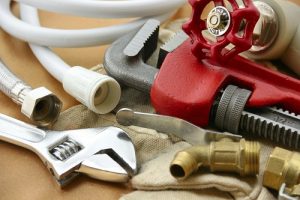Having a basement flood after heavy rainfall is a bigger deal than it may initially seem. Obviously, there’s the water damage, which depending on what you store in your basement may be a costly and stressful affair. Sewer backups can also involve sewage water, which is a health hazard that can be costly to get rid of entirely. You can usually tell if it’s a sewer backup by the smell, but if you’re worried about sewer backups, follow these four tips to prevent the issue from getting out of hand.
1. Floor Drain Plug
If you install one-way drain plugs, they can prevent water from backing up due to overloaded sewers. When sewer condition returns to normal, a special float is deactivated and water can return through the opening. One-way plugs like this are actually pretty inexpensive and are typically the simplest preventative solution. Commercial plugs can be used to completely seal off a drain but will prevent proper drainage in the instance of a pipe bursting or an overflowing laundry machine.
2. Standpipe
Standpipes are essentially an ordinary pipe stuck in the floor drain that is surrounded by a watertight rubber seal. Water will rise out of the drain into the pipe, instead of out onto the floor, unless the backup is so deep that it goes over the top of the pipe, which is about 3 feet. Once flood conditions are over, the standpipe can be removed which will allow any water spillage to drain.
3. Overhead Sewer
Overhead sewers are the most foolproof protection against any kind of basement flooding but are also the most costly by far. How does it work? Overflow is collected in a space below the floor level known as a sump, where water is pumped into overhead pipes. Then, it drains into the building’s main sewage lines.
4. Backwater Valve
Also known as a backflow prevention valve, this can be installed in the basement at the exit point from the building or the underground pipe that connects to the sewer line. This is called the sewer lateral, which is typically found in the nearest manhole. Backwater valves do require a licensed plumber and construction permit and as such is considered a higher priced solution.
Get in Touch With Mahon Plumbing
Mahon Plumbing has been serving the Baltimore region’s plumbing needs since 1994. We’re ready to offer quality plumbing services and gas installation for both commercial and residential uses. Our tracks and employees are ready to handle the toughest of jobs.
For more information, follow our blog or check us out on Facebook or Twitter. We’re able to offer 24 hour a day, 7 day a week emergency services. Please contact us at 410-766-8566 if you have any questions or are in need of emergency services.

